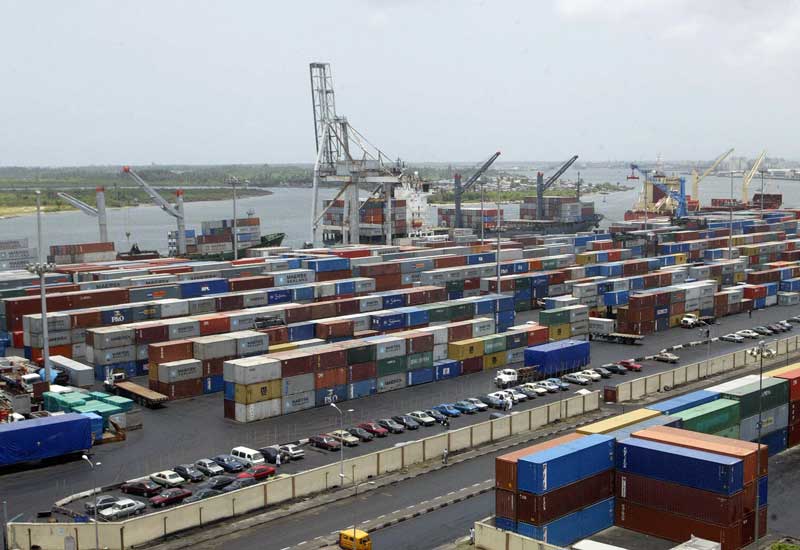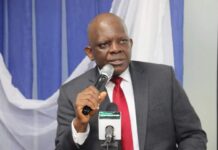The Executive Secretary of the Nigerian Shippers’ Council, NSC – Barr. Hassan Bello has disclosed that there is no tolerance for tendencies that seek to promote oil and gas monopoly in operations of Nigeria seaport system.
This came up during the second Transport Leadership Lecture organized by Kings Communications, publishers of MMS Plus Newspaper, held at the Golden Gate Restaurant, Ikoyi, Lagos.
Bello explained that the Council will not, under any form, support such monopoly as it was not known to the ports concession agreement. He stated: “What we did was equilibrium, we need fair playing field for everybody and that was why the Shippers’ Council was the first to oppose the so-called oil and gas monopoly in some ports. We said that oil and gas cargo is not known to concession agreement and that was why we called for an opening of this concession agreement.
“I am aware that concession agreement is being renegotiated but it can never be a close thing. The concession agreement is for Nigerians, we have to participate in that, otherwise, it will still be the one-sided thing we have seen.”
He urged operators in the maritime industry to avoid sentiment in their evaluation of government accomplishments and to shun divisive and selfish interests as a way of developing capacity and achieving ports trade competitiveness at the regional, continental and global space.
Though Bello faulted private operators’ claims that government and its agencies at the port and transport sector generally have failed across the board, he, however, conceded that not all government policy actions have had positive effects on the industry.
He said, “We shouldn’t be lamenting constantly, there must be some bright side. Cabotage Law is experiencing initial challenges; we were able to integrate the Hamburg Law to enrich its processes. We have some challenges but not insurmountable.
“There are positives everywhere. We have to reform the trucking system, cargo system and tell the government there are deficits in the infrastructure. When I look at our deficit, we should be rejuvenated by the opportunities not daunted by challenges.
“Shippers’ Council has contributed to coming out of the deficit, we now have cargo shipping to the north through the Kaduna inland dry port, IDP, on the rail. We also have the Ibadan IDP on stream. Our problem of interconnectivity at Apapa, Nigeria seaport is reducing, all of these under the government’s short-medium-long term solution plan.
“We have admitted that the Nigerian ports are not configured for export, is it going to remain the same? Where is the cargo? The more cargo we have the better, we should be competitive.
“Consultation, synergy is extremely important in building the transport sector. “Now, when we want to open a modern truck transit park, the first people we contacted were the National Union of Road Transport Workers because they know where they park and we took them around the country and they will say, Oga this is a good place.
“Can you imagine if we have constructed all these parks and the drivers will say we are not going there? You have to consult. Consultation, synergy, inter-agency cooperation is extremely important in this industry.”
Sign in
Welcome! Log into your account
Forgot your password? Get help
PRIVACY POLICY PAGE
Password recovery
Recover your password
A password will be e-mailed to you.












